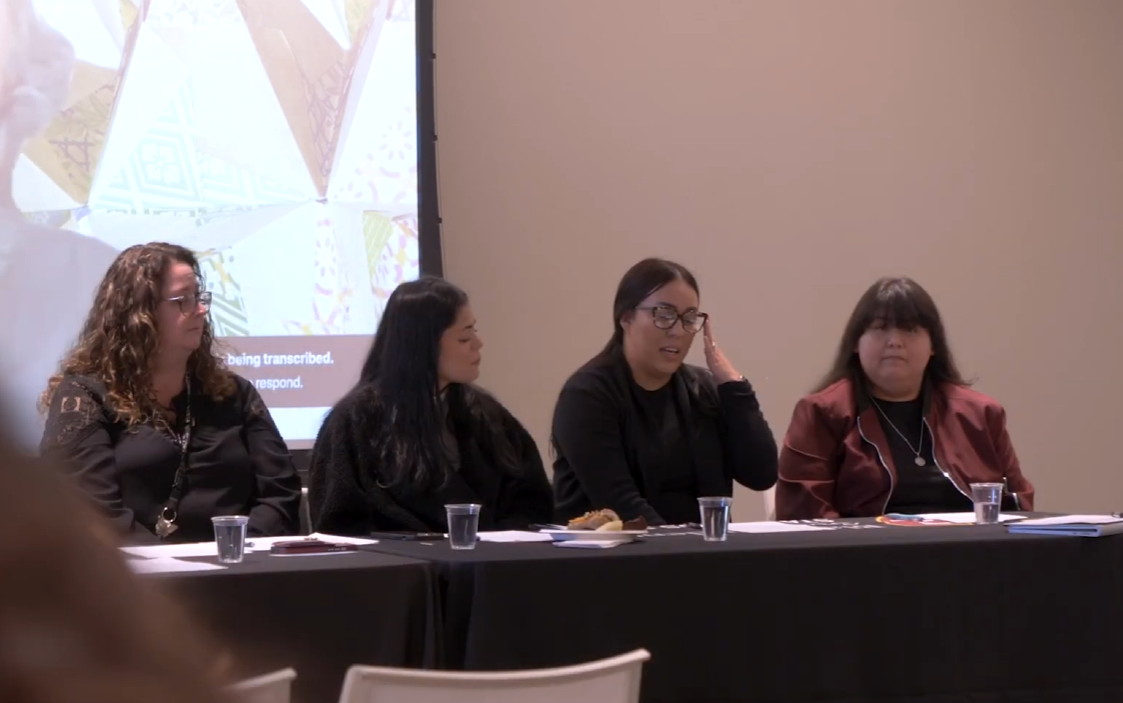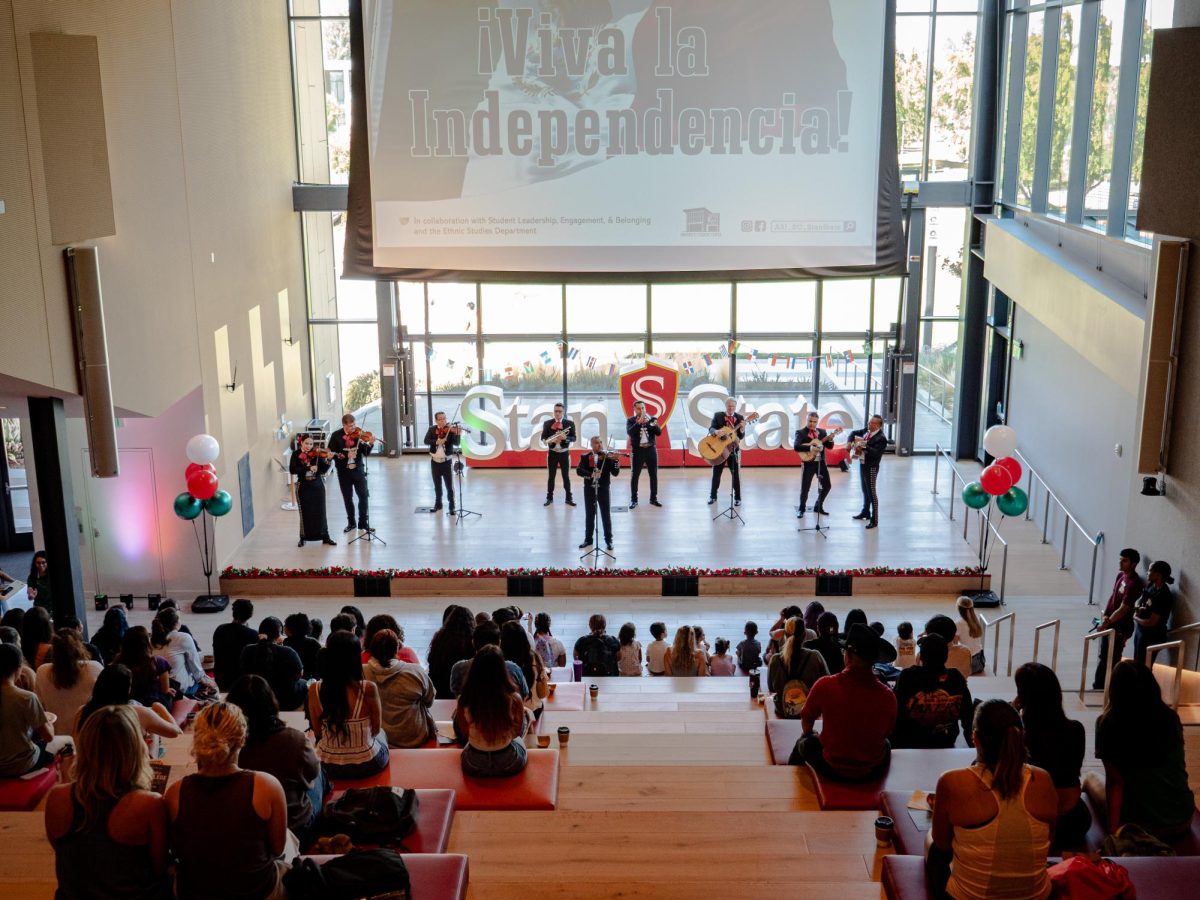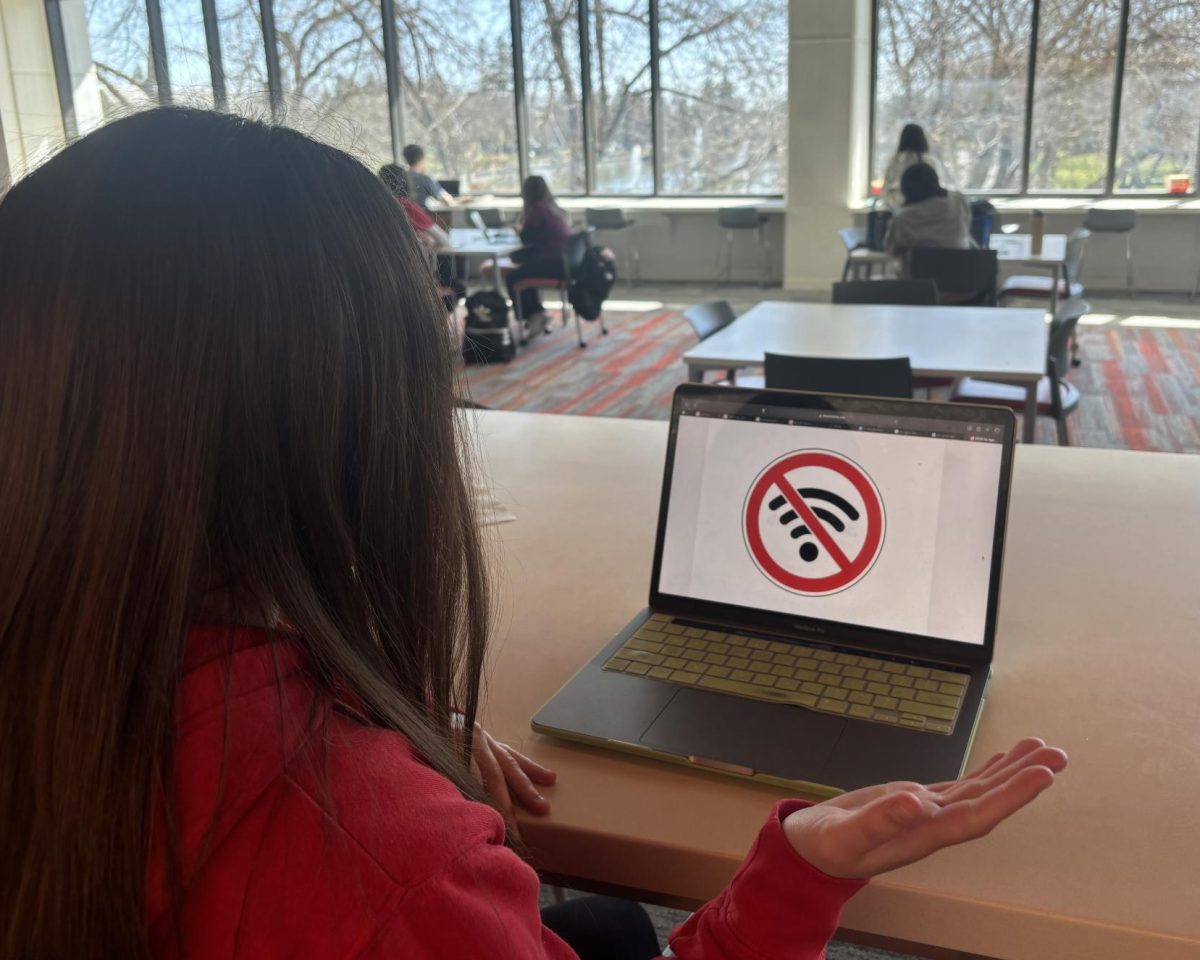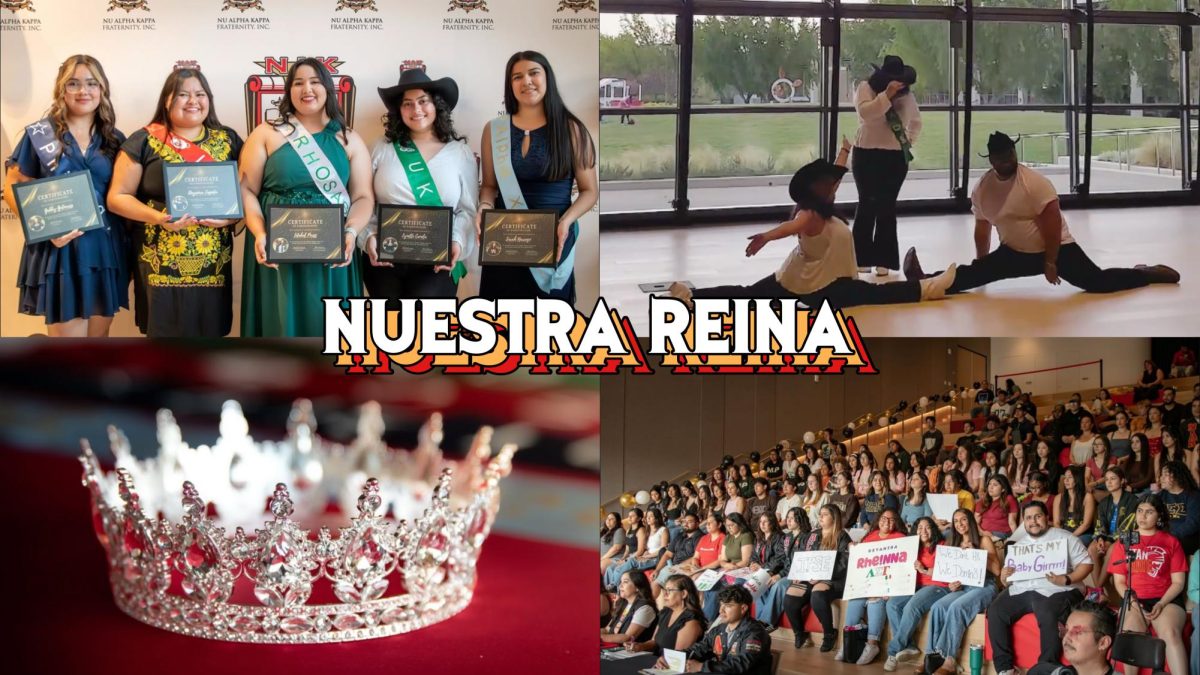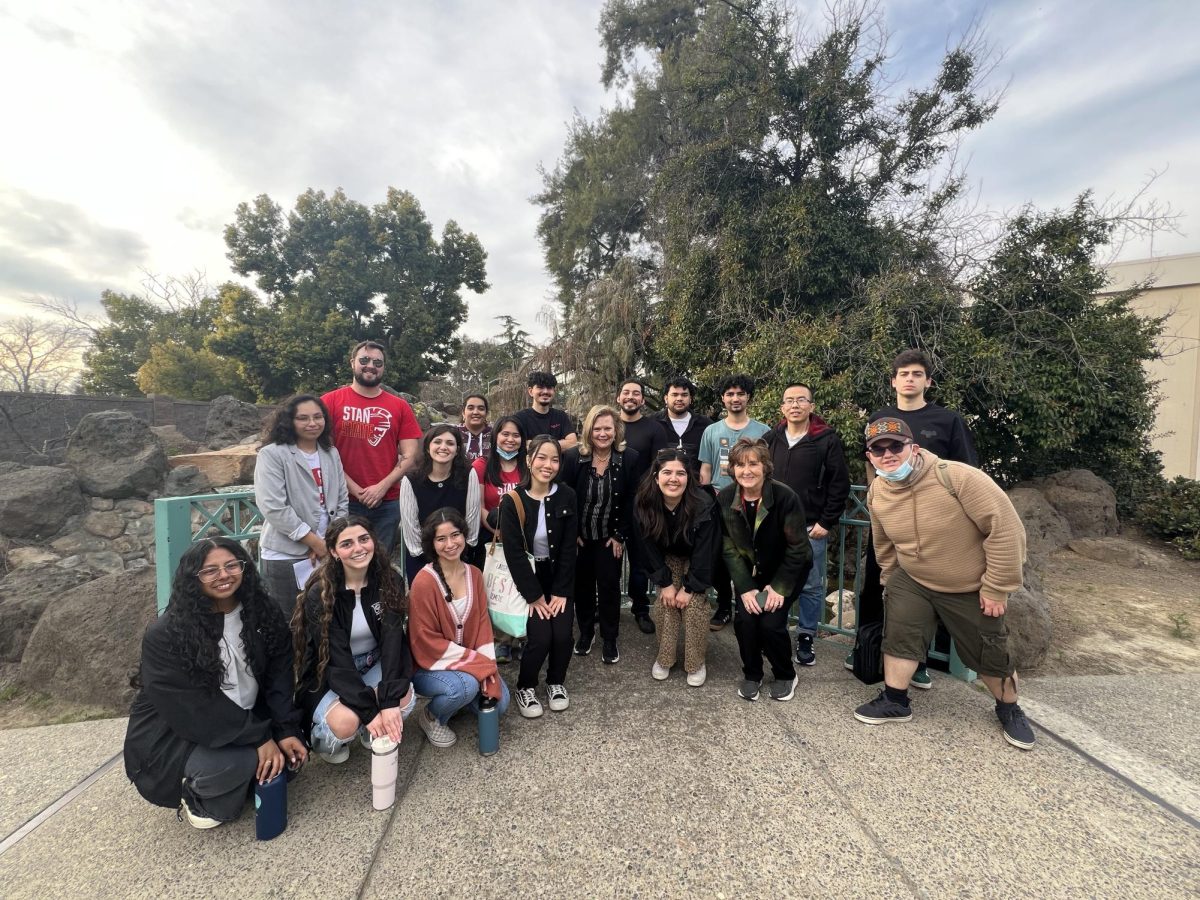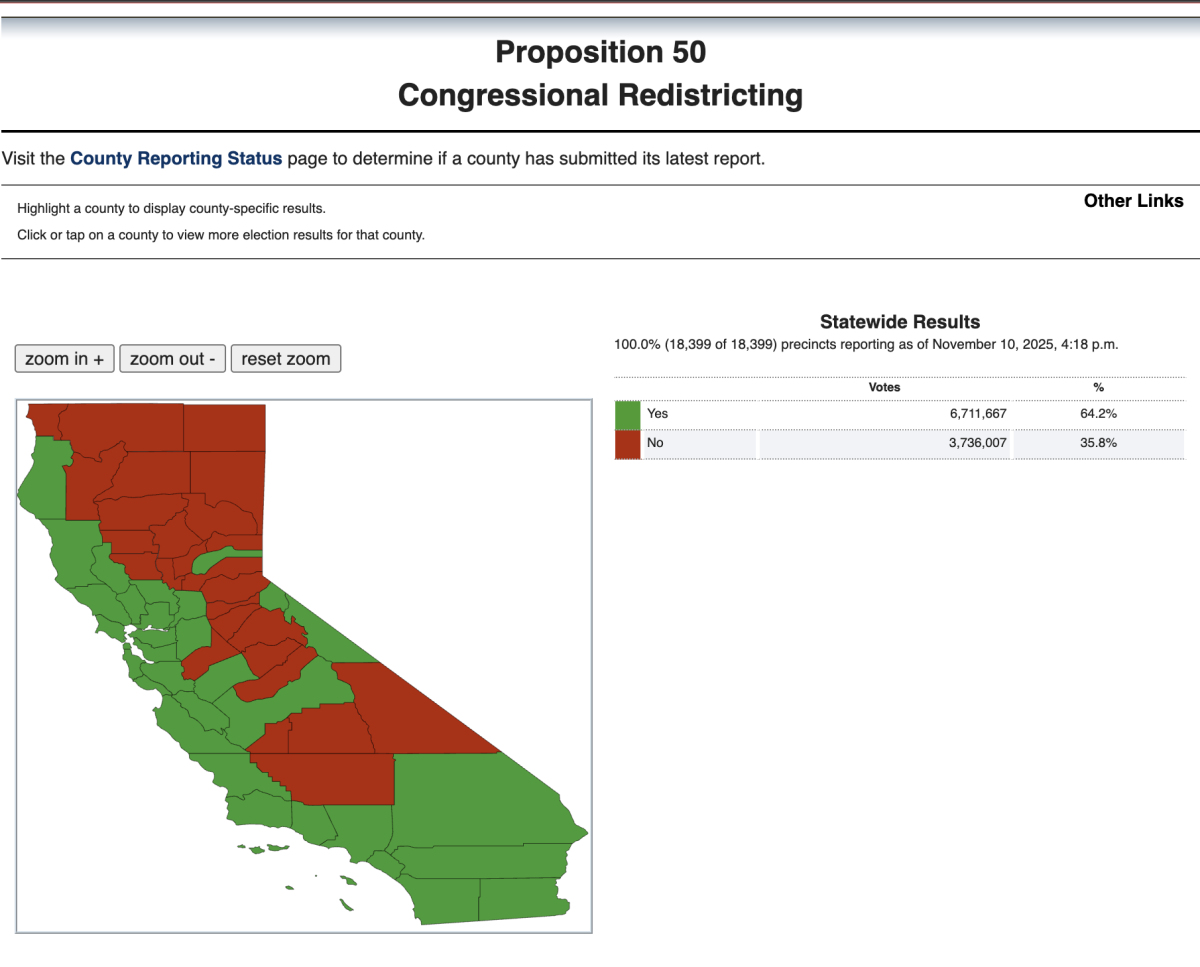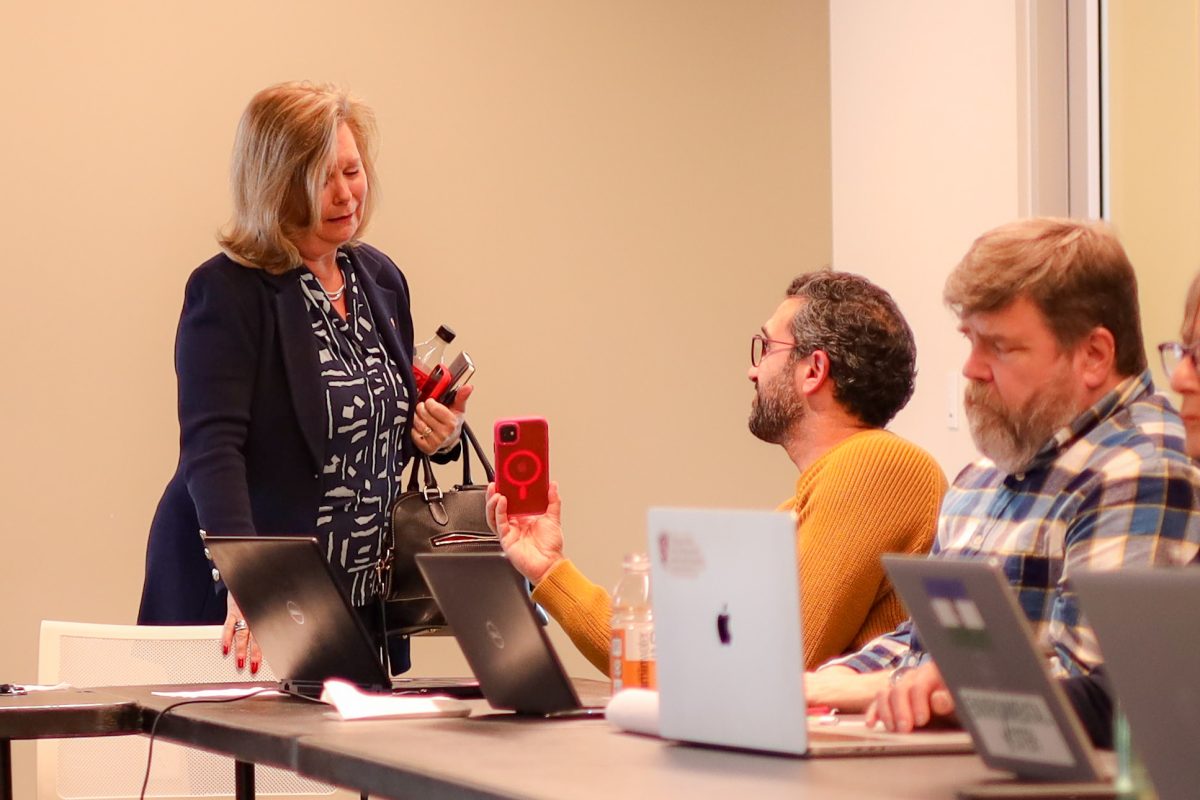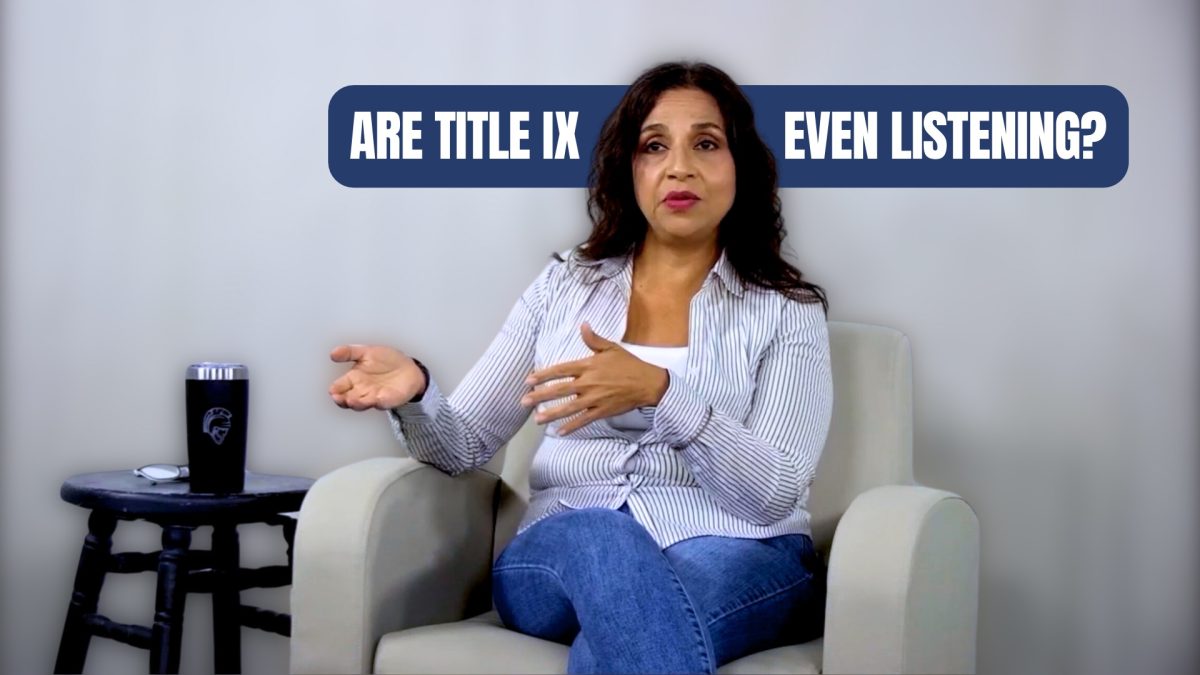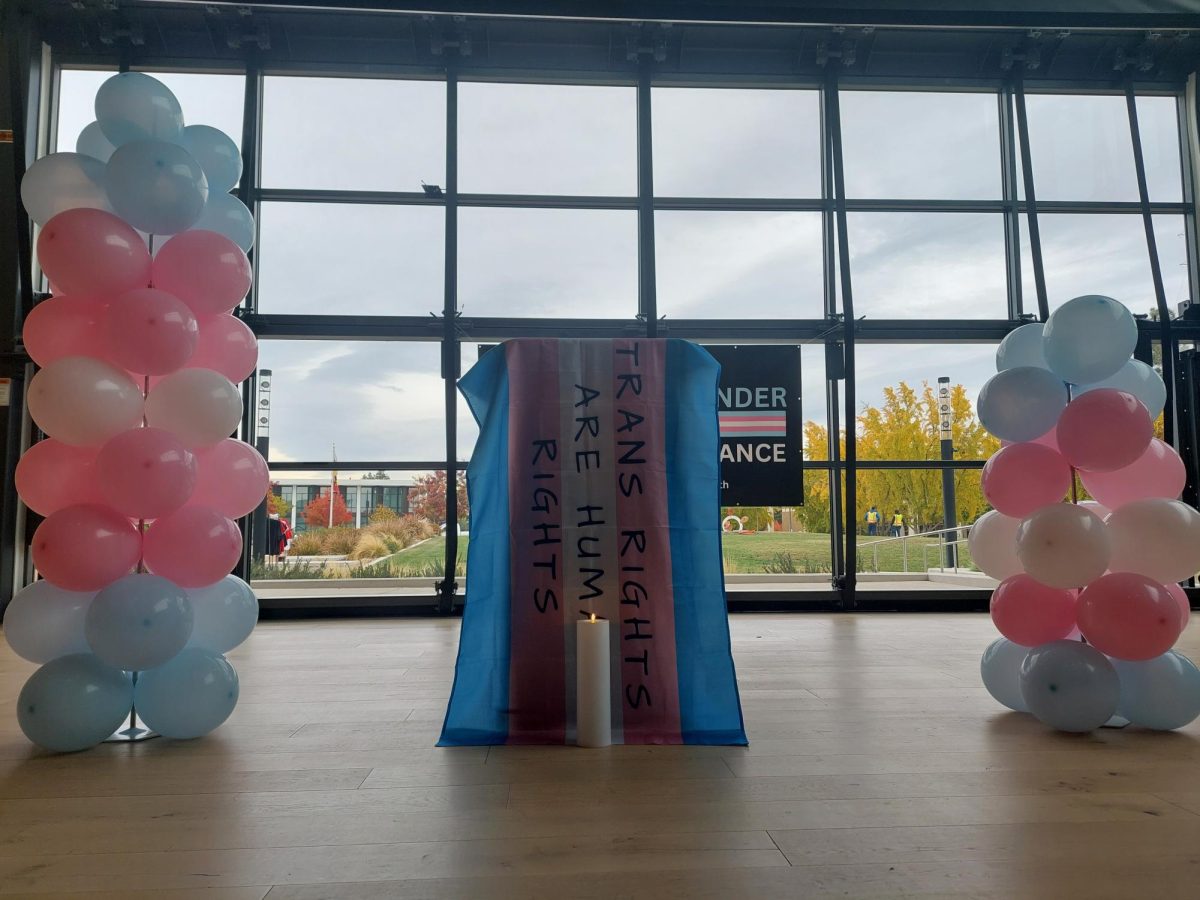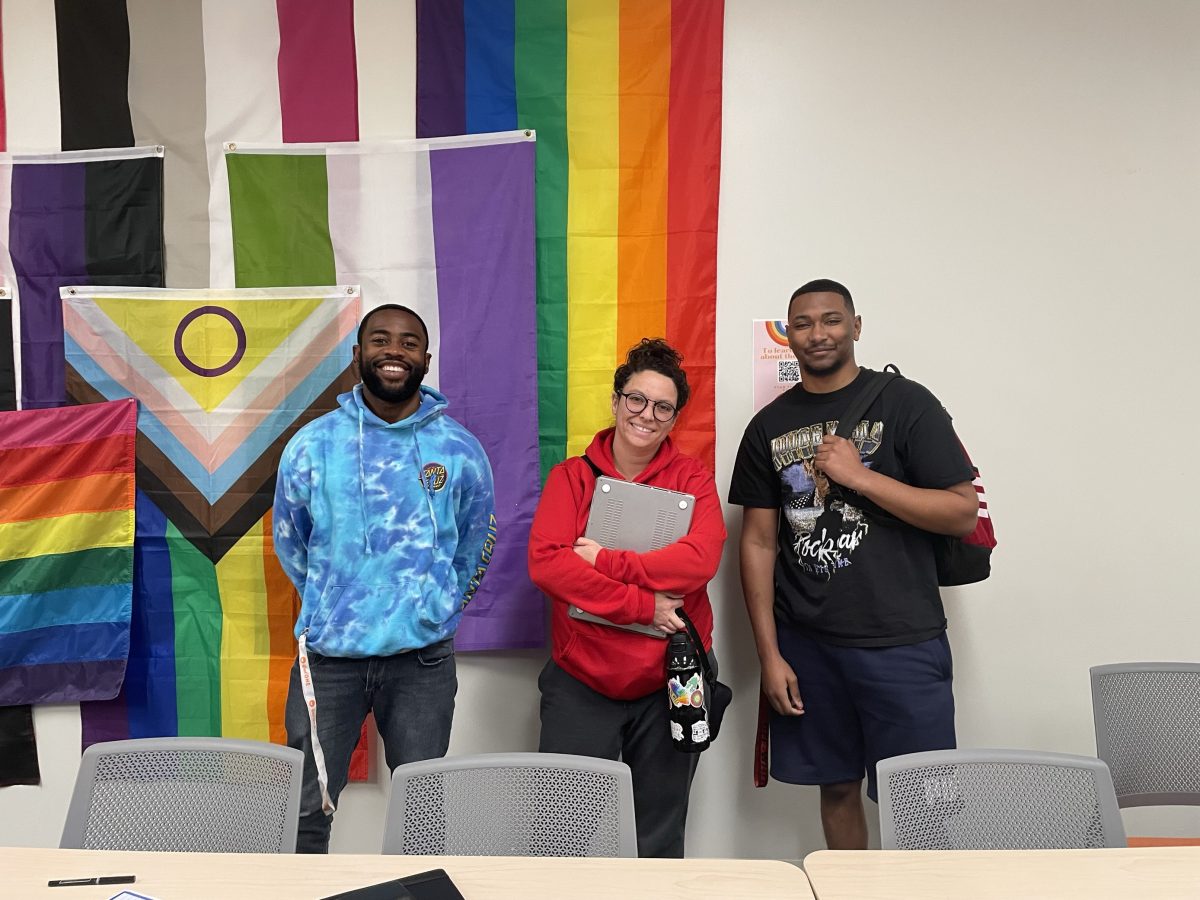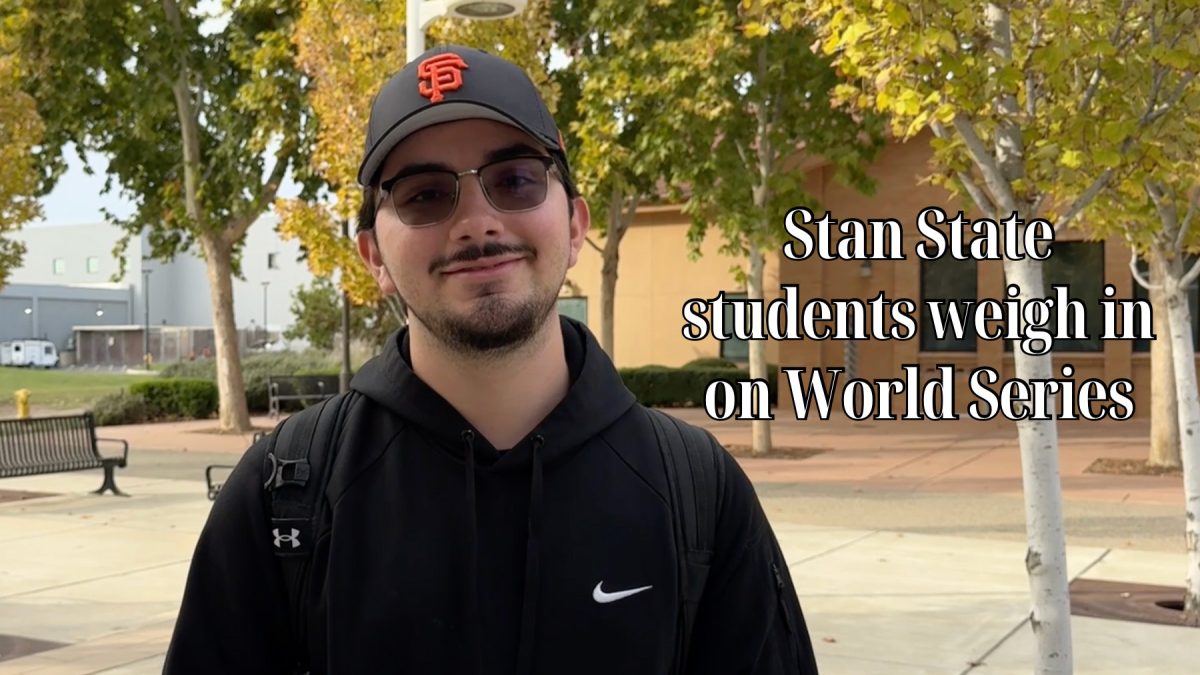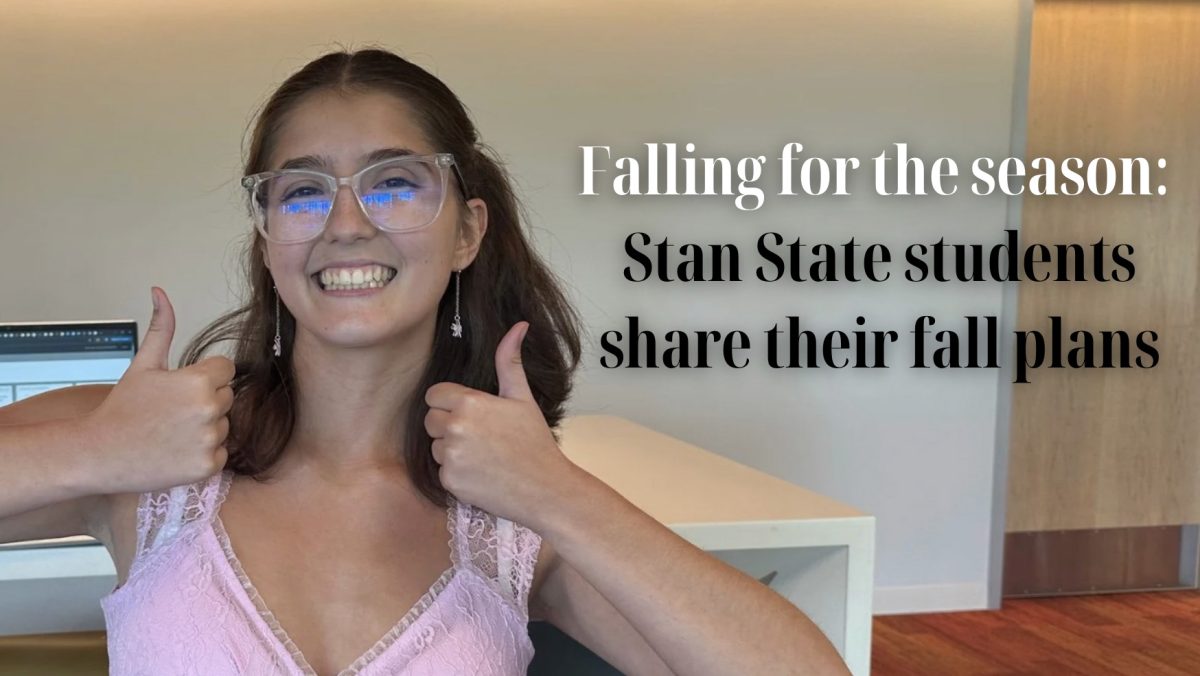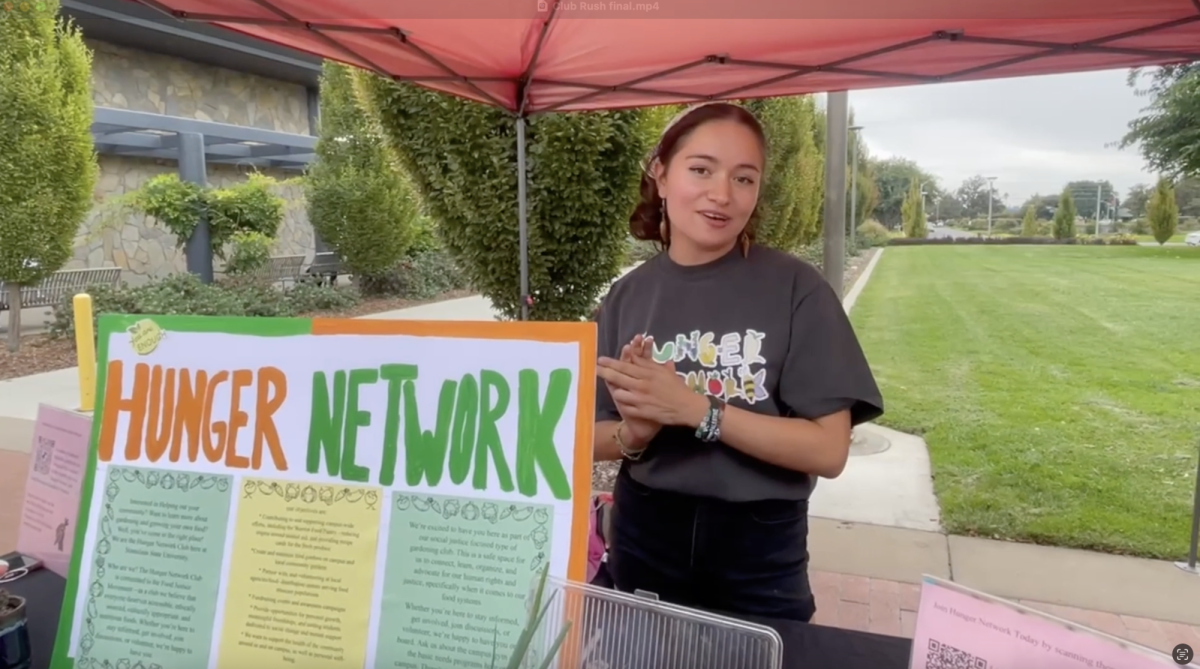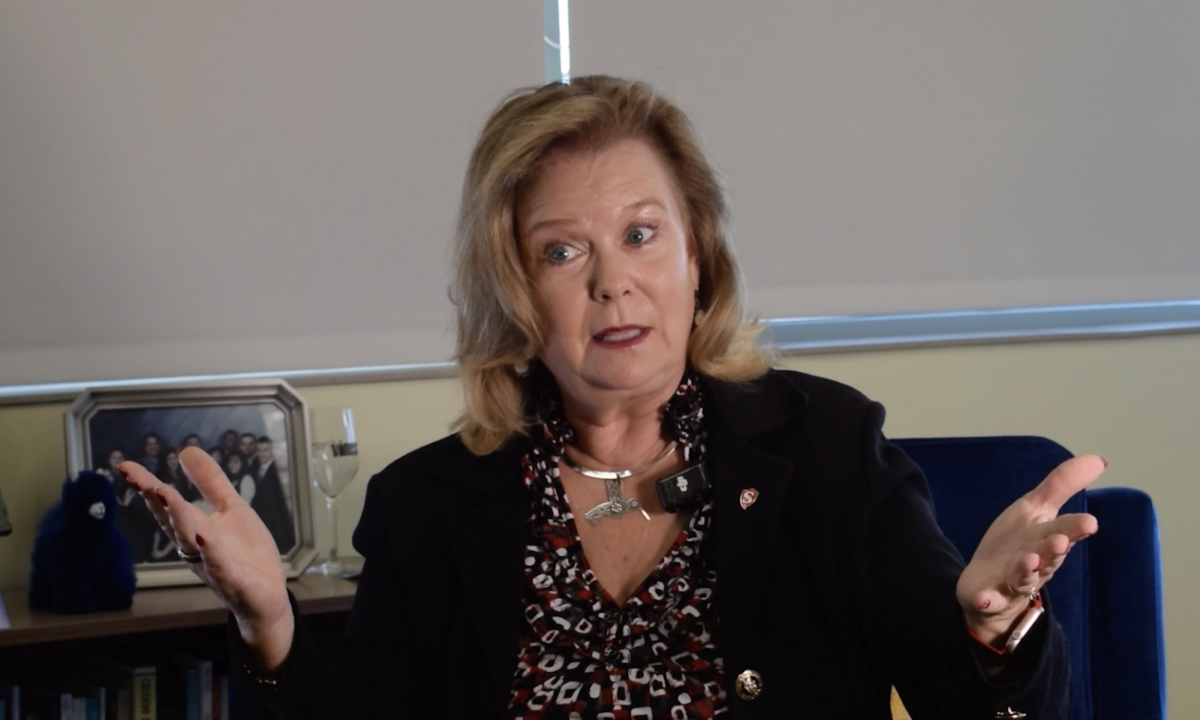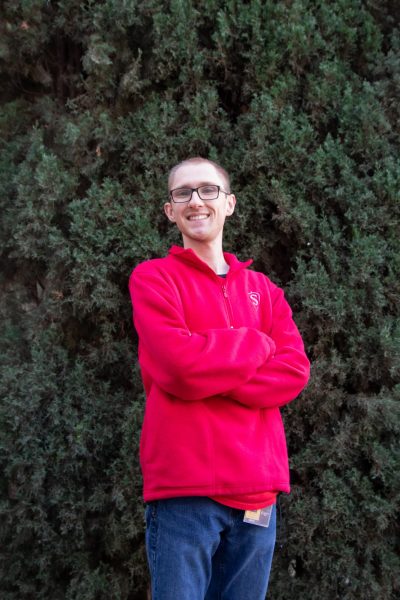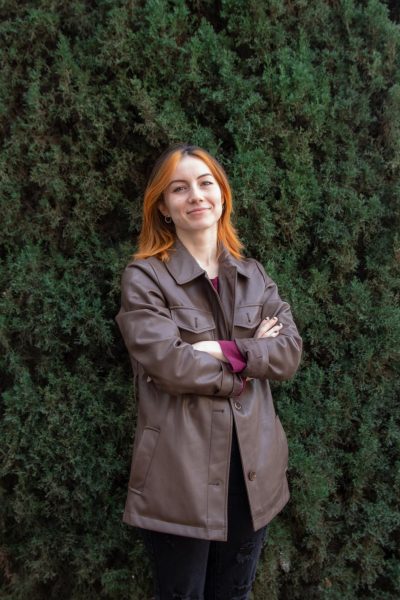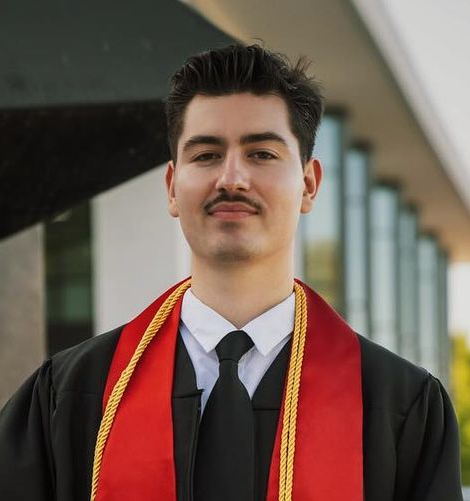Fear and anxiety seem to be on people’s minds as members of the Stan State community gathered this past Thursday to discuss the outcome of the presidential election. A panel of experts answered questions, reflected on the outcome, sought to help others understand, and gave advice on the next steps.
On Nov. 7 in L102, the office of Student Leadership, Engagement And Belonging hosted a workshop called Post-Election Reflection. According to Carolina Alfaro, the Executive Director of the Warrior Cross Cultural Center, the purpose of this event was to have a conversation, discussion and reflection about the presidential election and what that would mean for us going forward.
This workshop was held in a panel format with seven panel members that represent a wide range of campus perspectives. The panel members were Dr. David Colnic a Political Science faculty member, Dr. Jennifer Cullison, a History faculty member, Dr. Mary Roaf, an Ethnic Studies faculty member, Jennifer Staffero from Counseling & Psychological Services, Dana Mendez, a Master of Social Work student, Natalia Reynoso, a Master of Social Work student, and Gloria Vallin, a Master of Social Work student. The panel’s discussion was moderated by Neisha Rhodes, Director for Presidential Initiatives (Governmental Relations).
Rhodes started off with a powerful opening statement to guide the direction of the panel, “We are here at a really critical juncture and we hope today’s conversation will give insight to the many layers of our democratic process. Elections are not only about the immediate outcome, but it also really serves as a reflection on what the priorities are for our community and their values. We really want to take a look at, and think about, what are the motivations behind the who, how and why people voted the way that they did.”
One of the questions that was asked to the panel by Rhodes was about what policy changes we were going to see, she asked for input from some of the students on the panel.
Natalia Reymoso shared personal and powerful feelings about the policy changes.
“Considering I am a DACA recipient. I am recently married, but I still have friends and family that mean the world to me. It brings a lot of anxiety considering he has a plan for mass deportation,” Reymoso said.
As Reymoso shared this, she started to cry – an action that happened multiple times during the event by attendees.
Dr. Mary Roaf had a printed, abridged version of Project 2025 on hand, pointing people to it as a reference for what they could expect to change under the Trump administration.
“Read Project 2025,” Roaf said, “Healthcare Affordable Care Act gone. Millions of Americans no longer have insurance. We go back to the days because I’m 56 years old. I remember what it was like to have pre-existing conditions, ban people and kill people. We’re going back to that. They’re going after Medicare. Trump is saying 65 and older, why would you need to retire you, you need to get back in the workforce. Department of Education – dismantled. No more Pell grants.”
The Signal was able to verify most of these things are in Project 2025.
It is on the agenda to remove the Department of Education and on page 319 suggests, “Elementary and secondary education policy should follow the path outlined by Milton Friedman in 1955, wherein education is publicly funded but education decisions are made by families.”
With regards to Pell grants, on page 340 of Project 2025, it says, “Pell grants should retain their current voucher-like structure.” It then calls for a reform of the Office of Federal Student Aid stating, ” […] the new Administration should consider returning to a system in which private lenders, backed by government guarantees, would compete to offer student loans, including subsidized and unsubsidized loans.”
According to Project 2025, there will also be less forgiveness with student loan repayments and an increase in repayment accountability.
At the end of the event, there was a Q&A. Some members of the audience asked questions, others shared how they were feeling and another talked about what we can do.
One audience member shared through tears, “I just want to say that it’s also hard for me and my parents and seeing how hard it’s been for them. But the hardest part is seeing my parents suffer even though they are good, hard-working people who don’t deserve the way politics treats them. Seeing the pain on our parents’ faces because they sacrificed everything for a better future for us but we are not going forward, we are going backward and I think for them that is the hardest part.”
Another audience member shared how the midterms are going to matter.
“Although it is hard to find a lot of optimism in all of this, the midterm elections are really going to matter. If the Democrats can regain control of the House and Senate, then instead of having four absolutely horrible years. We will have two horrible years and two less horrible years,” the student said.
There seemed to be some hope at the end of the tunnel as at the end of the panel Jennifer Staffero led the group in a mindful exercise. If anyone is in need of support you can reach out to Counseling & Psychological Services.





